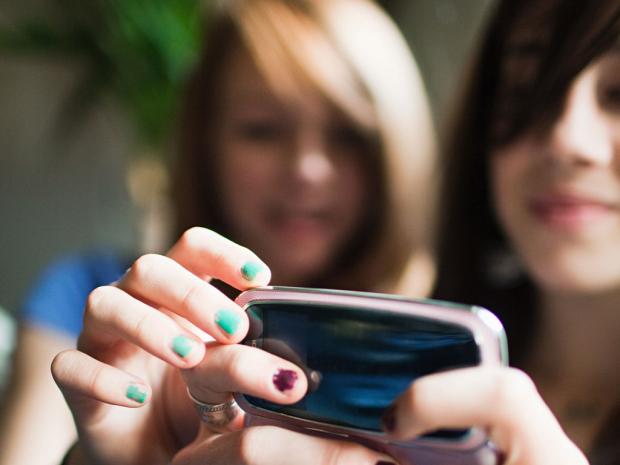

Britain’s school children are experiencing a “sexting crisis”, according to a newspaper investigation.
Tens of thousands of children have been caught sharing sexual imagery online over the last three years, leading the Government and child-protection groups to call for compulsory sex education classes at schools.
The investigation, by The Times, included 50 schools and found that a third of all cases involved children aged 12 and 13.
More than one in ten cases involved a “non-school adult”, the newspaper reported, undermining what it said was an argument that this is just a normal part of adolescence today.
Maria Miller, the former culture secretary, who also chairs the women and equalities select committee, called on the Government to implement mandatory sex education in schools to help confront the “appalling” effects of sexting on children.
“There has been historically a very negative attitude to making sex education compulsory from the government, but I think the tide is turning,” she told The Times.
“I have changed my position on it. I used to think it should be schools who decide what’s appropriate but the way the internet is impacting on young people’s lives — and particularly young girls — leaves them in need of far greater support. We have to make sure that we have teachers and organisations who are specialists in these areas to be able to tackle it properly.”
She also insisted to Nicky Morgan, the Education Secretary, to make it obligatory for schools to report any sexting by anyone under the age of 18 to the police. “It shouldn’t be under the schools’ discretion,” she said. “It is an illegal act.”
The 50 schools involved were asked to provide details of sexting cases since 2012.
They identified 1,218 pupils who had sent or receives a sext, defined as sexual or indecent imagery of minors shared via a mobile phone, webcam, digital camera of website.
The highest number of reported cases came from Hichingbrooke school, Huntingdon, Cambridge. They recorded 116 cases since 2012.
This information was used to estimate a national figure, which suggested that 44,112 secondary school pupils have been caught sexting over the last three years. These figures were released under the freedom of information act, requested by The Times.
These figures may not be accurate as they only include cases reported to the schools.
Secretary of State for Education Nicky Morgan said: “We want young people to be able to take advantage of the vast potential that the internet and social media offers to their lives and education. But we also want to make sure they are aware of the risks and dangers – including sending inappropriate images. That’s why schools have a responsibility to make sure children know how to stay safe online and when using technology and social media.”
Ms Morgan said the Department of Education is asking all schools to put in place stronger measures to protect pupils from harm online and that the law is “crystal clear” in saying teachers should report any indecent images of children to police.
“Alongside this, all schools should deliver high quality PSHE which is an important opportunity to teach young people about how to stay safe and avoid risks,” she said.
“To support schools to do that we have funded and produced a range of guidance and support on issues ranging from consent to internet safety.”
[Source:- INdependent]



